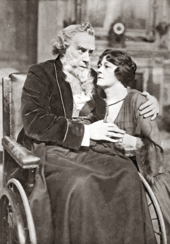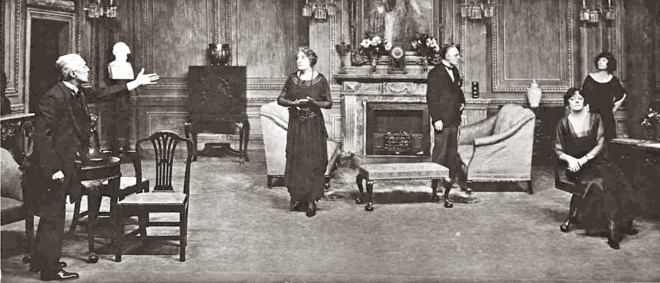
Alan Alexander Milne was an English writer best known for his books about the teddy bear Winnie-the-Pooh, as well as for children's poetry. Milne was primarily a playwright before the huge success of Winnie-the-Pooh overshadowed all his previous work. He served in both world wars, as a lieutenant in the Royal Warwickshire Regiment in the First World War and as a captain in the Home Guard in the Second World War.

The Importance of Being Earnest, a Trivial Comedy for Serious People is a play by Oscar Wilde, the last of his four drawing-room plays, following Lady Windermere's Fan (1892), A Woman of No Importance (1893) and An Ideal Husband (1895). First performed on 14 February 1895 at the St James's Theatre in London, it is a farcical comedy depicting the tangled affairs of two young men about town who lead double lives to evade unwanted social obligations, both assuming the name Ernest while wooing the two young women of their affections.

Dionysius Lardner "Dion" Boucicault was an Irish actor and playwright famed for his melodramas. By the later part of the 19th century, Boucicault had become known on both sides of the Atlantic as one of the most successful actor-playwright-managers then in the English-speaking theatre. The New York Times hailed him in his obituary as "the most conspicuous English dramatist of the 19th century,"; he and his second wife, Agnes Robertson Boucicault, applied for and received American citizenship in 1873.
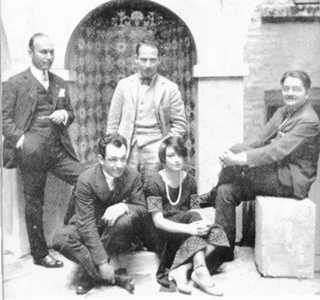
The Algonquin Round Table was a group of New York City writers, critics, actors, and wits. Gathering initially as part of a practical joke, members of "The Vicious Circle", as they dubbed themselves, met for lunch each day at the Algonquin Hotel from 1919 until roughly 1929. At these luncheons they engaged in wisecracks, wordplay, and witticisms that, through the newspaper columns of Round Table members, were disseminated across the country.

Alexander Humphreys Woollcott was an American drama critic and commentator for The New Yorker magazine, a member of the Algonquin Round Table, an occasional actor and playwright, and a prominent radio personality.

In March 1698, Jeremy Collier published his anti-theatre pamphlet, A Short View of the Immorality and Profaneness of the English Stage; in the pamphlet, Collier attacks a number of playwrights: William Wycherley, John Dryden, William Congreve, John Vanbrugh, and Thomas D'Urfey. Collier attacks rather recent, rather popular comedies from the London stage; he accuses the playwrights of profanity, blasphemy, indecency, and undermining public morality through the sympathetic depiction of vice.
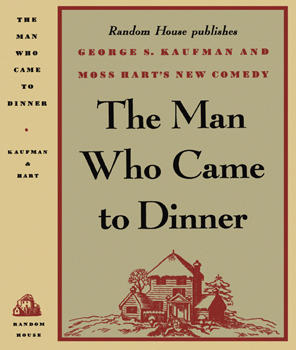
The Man Who Came to Dinner is a comedy play by George S. Kaufman and Moss Hart. It debuted on October 16, 1939, at the Music Box Theatre in New York City, where it ran until 1941, closing after 739 performances. It then enjoyed a number of New York and London revivals. The first London production was staged at The Savoy Theatre starring Robert Morley and Coral Browne. In 1990, Browne stated in a televised biographical interview, broadcast on UK Channel 4, that she bought the rights to the play, borrowing money from her dentist to do so. When she died, her will revealed that she had received royalties for all later productions and adaptations of the play.
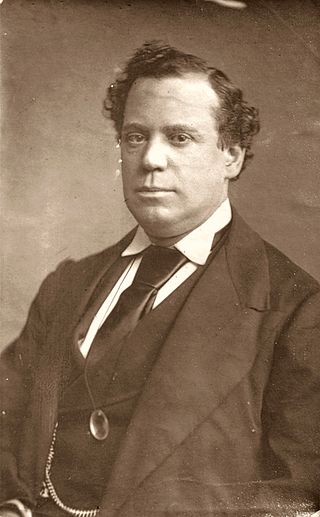
John Lawrence Toole was an English comic actor, actor-manager and theatrical producer. He was famous for his roles in farce and in serio-comic melodramas, in a career that spanned more than four decades, and the first actor to have a West End theatre named after him.

Dame Irene Boucicault DBE, née Barnes, known professionally as Irene Vanbrugh was an English actress. The daughter of a clergyman, Vanbrugh followed her elder sister Violet into the theatrical profession and sustained a career for more than 50 years.
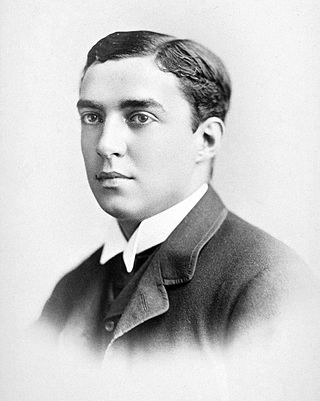
Dion Boucicault Jr. was an actor and stage director. A son of the well-known playwright Dion Boucicault and actress Agnes Robertson, he followed his father into the theatrical profession and made a career as a character actor and a director. In addition to extensive work in the West End of London, he spent considerable time in Australia, where he went into management in the 1880s.

Nude with Violin is a play in three acts by Noël Coward. A light comedy of manners, the play is a satire on "Modern Art", criticism, artistic pretension and the value placed on art. It is set in Paris in 1956 and portrays the effect on the family and associates of a famous artist when it is revealed after his death that he painted none of the pictures signed by him and sold for large sums. The action is mostly under the discreet control of the artist's valet, Sebastien, who manipulates events to bring about a happy ending for all the characters.
The Colleen Bawn, or The Brides of Garryowen is a melodramatic play written by Irish playwright Dion Boucicault. It was first performed at Laura Keene's Theatre, New York, on 27 March 1860 with Laura Keene playing Anne Chute and Boucicault playing Myles na Coppaleen. It was most recently performed in Dublin at the Project Arts Centre in July and August 2010 and in Belfast by Bruiser Theatre Company at the Lyric Theatre in April 2018. Several film versions have also been made.

Three New York City playhouses named Wallack's Theatre played an important part in the history of American theater as the successive homes of the stock company managed by actors James W. Wallack and his son, Lester Wallack. During its 35-year lifetime, from 1852 to 1887, that company developed and held a reputation as the best theater company in the country.

Oliver Peters Heggie, billed as O. P. Heggie, was an Australian film and theatre actor best known for portraying the hermit who befriends the Monster in the film Bride of Frankenstein (1935). He was born Otto Peters Heggie at Angaston, South Australia to a local pastoralist. He was educated at Whinham College and the Adelaide Conservatoire of Music. He died in Los Angeles of pneumonia. He is buried at Woodside Cemetery, Yarmouth Port, Barnstable County, Massachusetts.

The Dover Road is a three-act comedy by A. A. Milne, seen on Broadway in 1921–22 and in the West End in 1922–23. It depicts the dampening effect of close proximity on the ardour of eloping couples when they are forced into sustained exposure to each other's habits and idiosyncrasies.
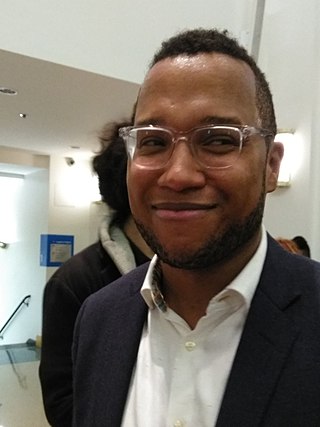
Branden Jacobs-Jenkins is an American playwright. His plays Gloria and Everybody were finalists for the 2016 and 2018 Pulitzer Prize for Drama. His play Appropriate made his Broadway debut as a playwright in 2023 and earned him his first Tony Award. His additional plays include An Octoroon and The Comeuppance. He was named a MacArthur Fellow in 2016.
An Octoroon is a play written by Branden Jacobs-Jenkins. It is an adaptation of Dion Boucicault's The Octoroon, which premiered in 1859. Jacobs-Jenkins reframes Boucicault's play using its original characters and plot, speaking much of Boucicault's dialogue, and critiques its portrayal of race using Brechtian devices. Jacobs-Jenkins considers An Octoroon and his other works Appropriate and Neighbors linked in the exploration of theatre, genre, and how theatre interacts with questions of identity, along with how these questions transform as a part of life. In a 2018 poll by critics from The New York Times, the work was ranked the second-greatest American play of the past 25 years.

Mr Pim Passes By is a three act comedy by A. A. Milne, first produced in 1919, and seen in the West End in 1920 and on Broadway and in Australia in 1921. There were later stage revivals in London and New York, and the play has been adapted for radio, television and cinema.

Ion Swinley, born Eric Ion Swindley was an English actor, known for his appearances in classics and modern dramas and comedies.

Faith Celli, born Dorothy Faith Standing, was an English actress, particularly associated with the plays of J. M. Barrie and A. A. Milne. She had a 20-year career from 1907, after which she retired from the stage.

